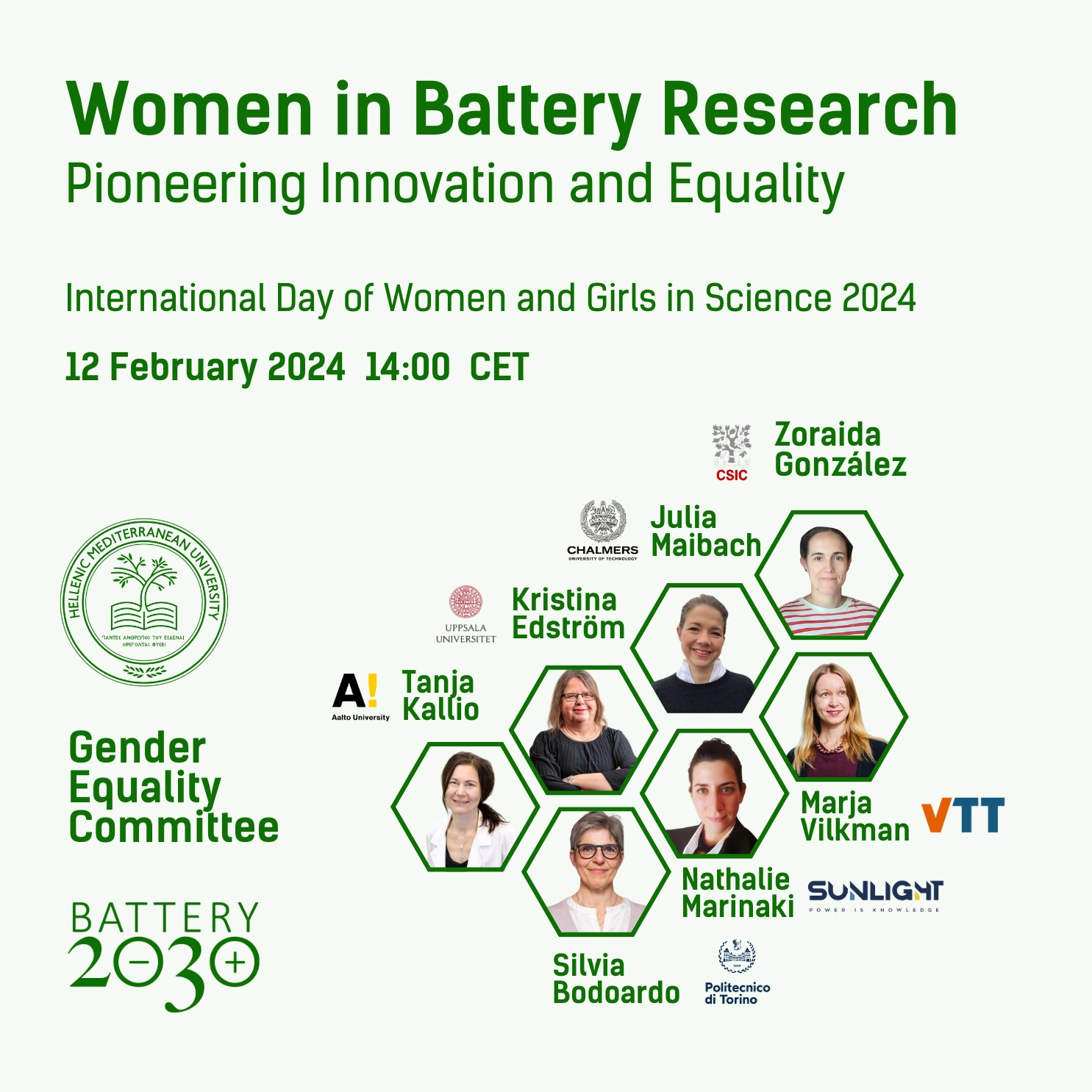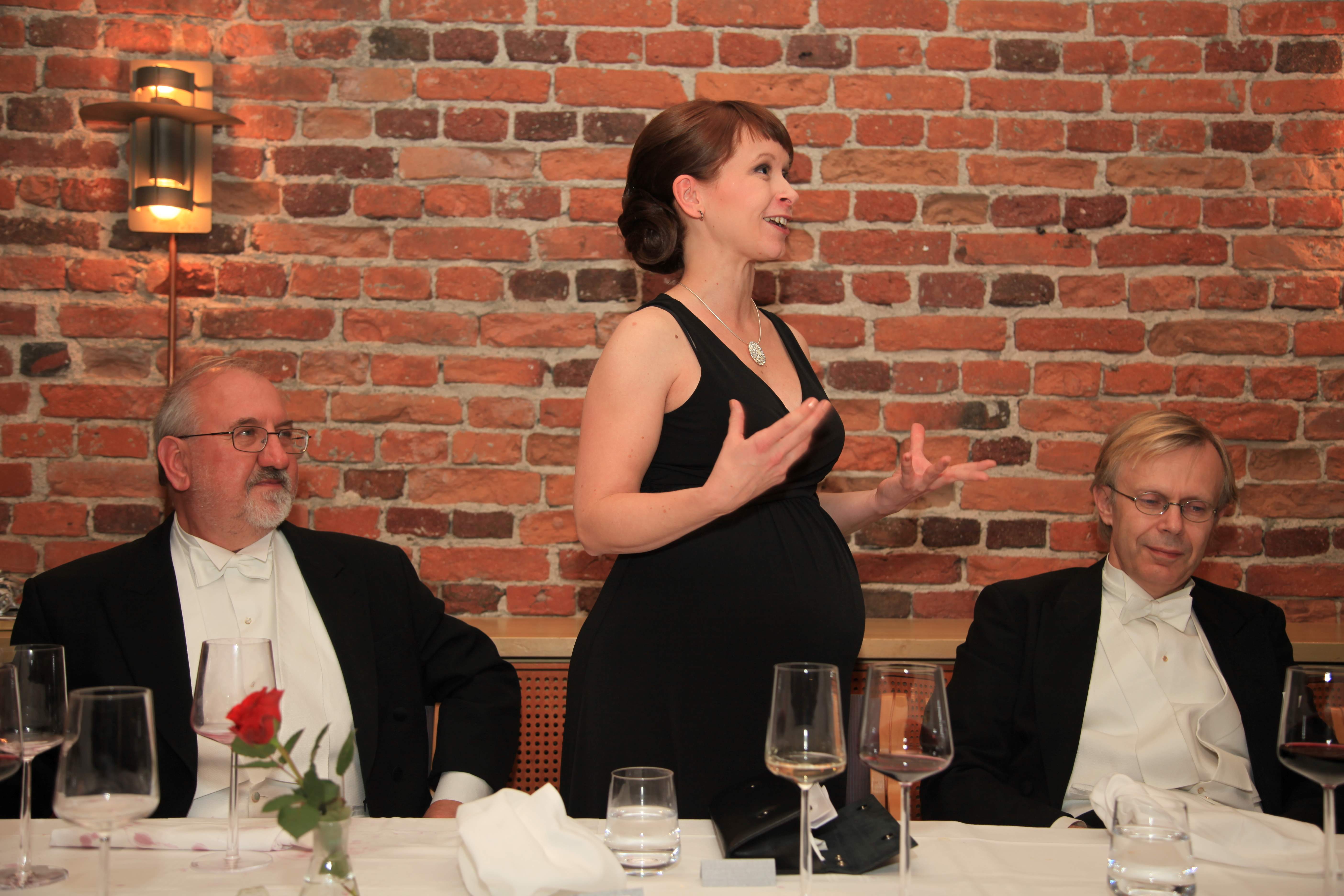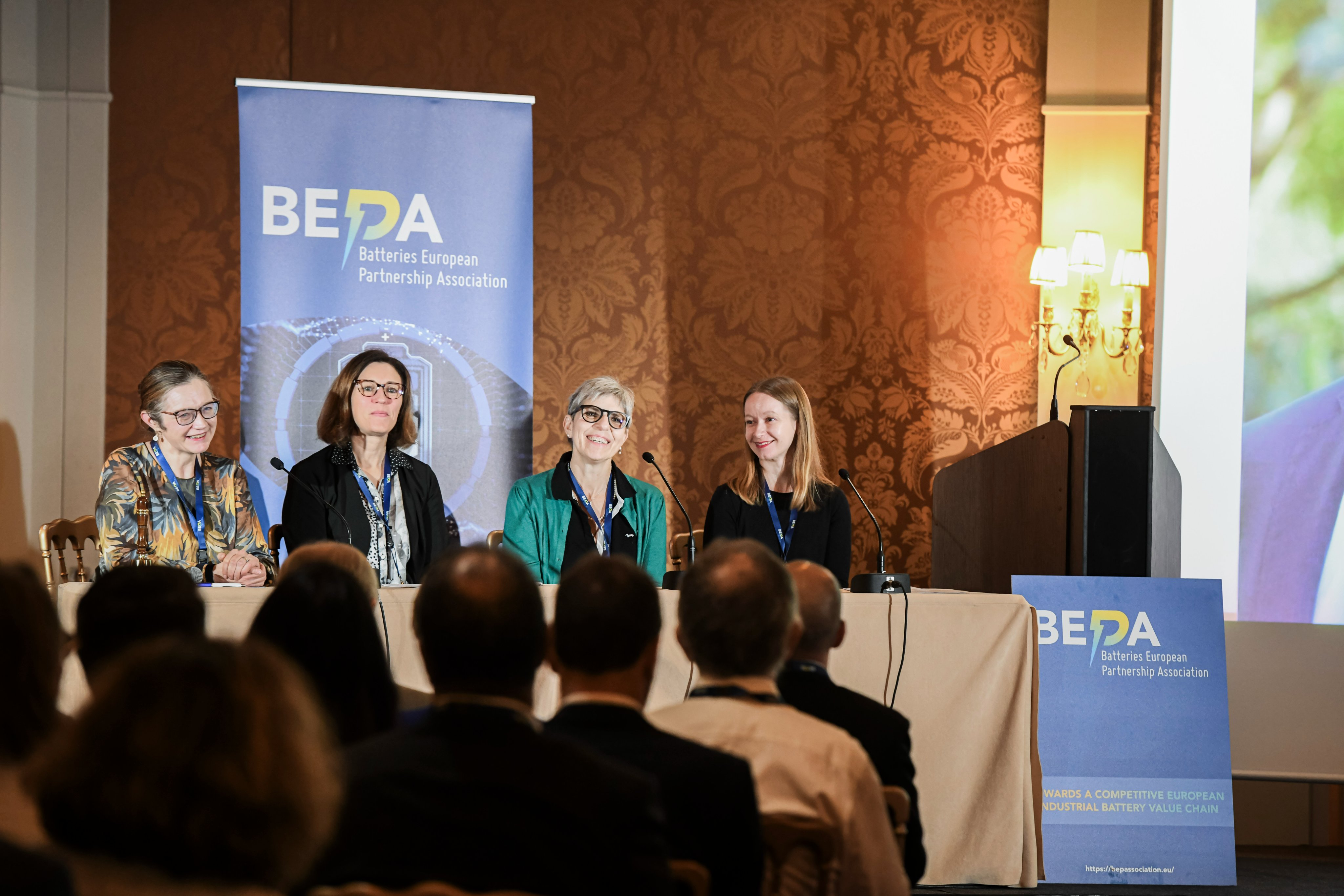Women in battery research
Today is the International Day of Women and Girls in Science. The goal of the day is to encourage more girls and women to take up jobs in the field of science, technology, engineering, and mathematics (so called STEM fields). We need all genders to work together to reach the sustainable development goals.
I live in Finland, which is quite an equal country. Women and men should have equal possibilities here to work in the STEM fields, and I do not remember any clear problems in my career due to my gender. I was invited to give a presentation about women in battery research (it is on February 12th and the list of speakers is great, see the add below!). This got me reading and thinking about the topic a bit more. First, I thought that being a woman has not affected my selections and career. But I started to see some patterns.

Selecting the field of studies
When I was in high school, I took only one mandatory course in physics and skipped several voluntary ones. Instead, I chose extra psychology, biology, and chemistry courses. I don’t know why, but I just did not feel that physics would be something for me.
When selecting where to study after high school, my first choice was studying biochemistry at the biology department at the Helsinki University. However, I did not get enough points in the final exams from the biology test. Thus, I would not get extra points for applying to the biology department. So, I chose to apply to the chemistry department at the Helsinki University of Technology instead (nowadays Aalto University). They had a biochemistry track there as well, and I did not need biology points to get in. Mathematics and chemistry were enough, and I knew I was good in those subjects.
I got in, but after starting my studies, I realised that I liked polymer technology topics a lot. Thus, I did not choose biochemistry as my major, I chose polymers. I also had planned to have organic chemistry as my minor topic, but after getting familiar with conducting polymers, I wanted to know more about their functionality and ended up having physical chemistry as my minor. I graduated from the chemistry department in 2002, and eventually ended up doing my doctoral studies at the physics department. Finally, I graduated from there in 2010, having a D.Sc. in physics!
It took me quite long to realize that physics is – and can be – for me.
Imposter syndrome
There have been several studies about the imposter syndrome, and they often report that women are more prone to this feeling than men. I for sure have suffered from it as well. I still feel it, for example every time I push the publish button for a blog text. But I have learned not to care so much anymore. Getting older helps, and having a mentor for a while has helped me previously as well. But could we make it easier for younger people, so that they could avoid the feeling of being an imposter?
I copy here a quote from the Harvard Business review: “The answer to overcoming imposter syndrome is not to fix individuals but to create an environment that fosters a number of different leadership styles and where diversity of racial, ethnic, and gender identities is viewed as just as professional as the current model.”
I think this is very well said. And I think we are already on a good path to reach this.
Being a mother and a scientist
I had our first child while I was doing my doctoral studies. And the second child right after my dissertation. I was 8 months pregnant then, as you can see from this image from the dissertation dinner:

A supporting network has been extremely important. My parents, husband and his parents have enabled me to work towards my goals by helping to take care of the kids while they have been ill, and I have had to work. Or if I had to travel, they have helped with the logistics from daycare to home and hobbies etc.
Working in a lab while pregnant also brings some challenges. For example, it is not allowed to work with some chemicals. I have been very lucky in finding a work environment where this has not been a problem. Both my teams at VTT and Aalto University arranged the work so that I could feel safe and productive, getting help from colleagues when needed. And I was able to return to the lab easily after the maternity leaves, to continue my studies and work. For me, being pregnant also gave me an extra motivation to finalize my thesis, as I had a clear DL 😊
I was not the only one to have a baby while studying. I still remember that my professor, Olli Ikkala, once said something like “It looks that we will have more babies than papers this year in our group”, in a very positive tone. And it was not just “ok”. It was celebrated! But I have heard from some collaborators outside Finland that having a baby while doing doctoral studies would have been impossible for them. Thus, I understand that it is not always this easy.
Sense of belonging
I have already written in my first blog text about how I ended up working with batteries. It took me a while to find this field, but I’m very happy that I finally found it. It feels like home now.
And I realize that this feeling is something that I did lack before, when making decisions about my studies. I had the skills, I had the passion, but I did not feel that selecting a technical field is something I should/could do. I just found one Finnish research paper, which gave a good term for this feeling: “Sense of belonging”. This is exactly what I was missing as young, when I felt that physics is not for me.
I also realize that this “sense of belonging” is something that has been clearly present in the Battery 2030+ community where I have had the pleasure to work in when coordinating the HIDDEN project. Prof. Kristina Edström and her team made it very clear from the start that I am welcome, and I belong here.
I believe that this feeling also encouraged me to apply for the research chair position in BEPA, and partly helped me to overcome my imposter syndrome. I did not even mention about my plans to anyone in Battery 2030+ before applying, but I felt the support anyway. This is very precious, and I want to thank the whole Battery 2030+ initiative for all your support. And the BEPA network has been very inclusive as well! We recently even had an all-female-panel in the General Assembly meeting last November 😊

Conclusions
In my view, equality is not just about equal possibilities. At least in Finland, technically speaking, everything is possible for women. It is about feeling that we belong here, in the STEM field. And this is why we still need to arrange days like the International Day of Women and Girls in Science.
It is very important to have diversity in the research teams and industry. And not just regarding gender. We need people with different nationalities, age, personalities, and experience. For example, I come from a country where we have cold winters and understand very well that electric vehicles need to be designed to function also when it is 20 degrees or more below zero Celsius, and when your car is covered with ice and snow. But I might not realize very well which kind of problems, needs and opportunities there are in extremely hot environments.
Battery research, like many other fields, requires so many different skills that we always need a diverse team to achieve the best outcome. We can encourage different people to join this field by being visible, having role models, mentoring, and showing that everyone is welcome, and everyone is needed. And of course, by creating an inclusive working environment.